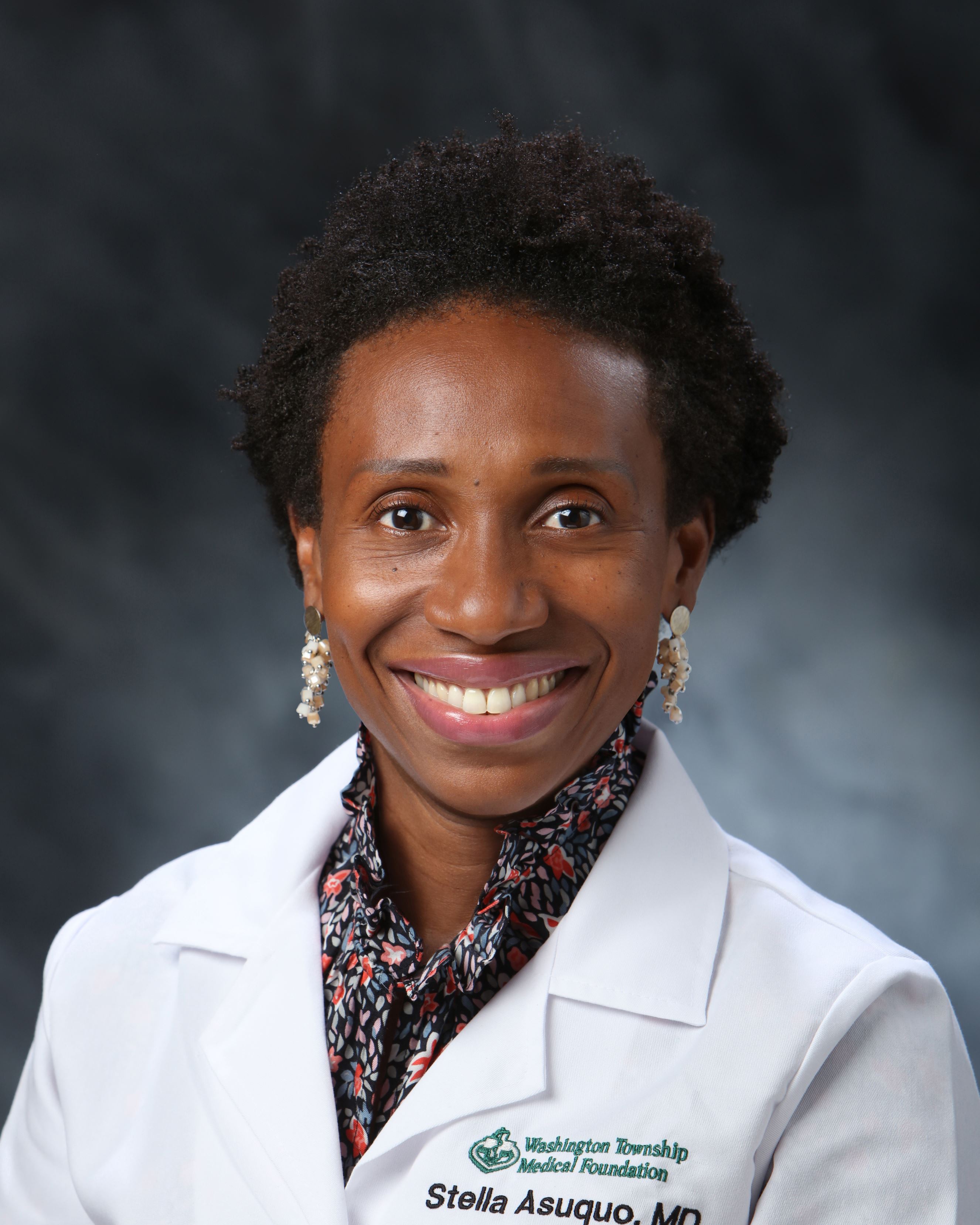Treating and Managing Vascular Disease
- Category: Health News
- Posted On:

Vascular surgeon joins Washington Township Medical Foundation
Washington Township Medical Foundation (WTMF) warmly welcomes Stella Asuquo, MD, to its vascular surgery and endovascular care team. Dr. Asuquo, who is board-certified and fellowship-trained, previously practiced at the John F. Kennedy Medical Center in New Jersey, and at Salinas Valley Memorial Hospital in California.
Vascular surgeons are specialists in treating diseases of the vascular system. When a disease or injury hinders blood flow, it may result in damage to organs or limbs. Dr. Asuquo has expertise in treating a wide range of vascular and endovascular conditions, including aortic aneurysms, blood clots, carotid disease, diabetic wounds, and peripheral arterial disease (PAD). Vascular and endovascular surgery are two frequent treatments for blockages in the arteries. Vascular surgery is open surgery that usually includes an incision. Endovascular surgery refers to less invasive procedures that use wire-thin catheters to diagnose and treat conditions.
She brings extensive training and experience to WTMF. After earning her medical degree at Indiana University School of Medicine, Dr. Asuquo completed her medical residency at Albert Einstein College of Medicine, Montefiore Medical Center, in New York. She then went on to complete a fellowship in vascular and endovascular surgery at Rutgers Robert Wood Johnson Medical School in New Jersey.
Dr. Asuquo is board-certified in both general and vascular surgery. Dr. Asuquo decided to specialize in vascular surgery while doing her medical residency. “During my general surgery training at Montefiore Medical Center I got a lot of vascular surgery exposure. The more I did it, the more I enjoyed it and wanted to pursue it for my career.”
What she loves most about her chosen field is the long-term relationships with patients that the specialty entails. Dr. Asuquo explains, “What is wonderful about vascular surgery compared to general surgery and many other surgery specialties is that I often get to follow patients over the course of their lifetime. I see many of my patients for decades, monitoring their vascular health to avoid serious or even fatal outcomes. My patients and I are partners in the management of their disease. I tell them that we are in this together and we are going to get through this together.”
Dr. Asuquo says that she relishes the diversity of procedures in her practice. “In vascular surgery, we are treating patients head to toe. Each new case poses interesting challenges. The continuing cerebral aspects of the work coupled with my long-lasting relationships with patients make my work enjoyable and fulfilling every day,” she says.
Vascular surgeons continue to see patients long after a surgical procedure because by its nature, vascular care is rarely a one-time solution. In part, this is because the vascular system is complex and reaches every part of the human body. Many vascular diseases and conditions occur alongside other diseases, like diabetes or heart disease, that can have an effect on the health of the vascular system. Dr. Asuquo monitors her patients through routine check-ins on their symptoms, noninvasive vascular lab studies, and ultrasound surveillance. Difficulty with coordination or walking, wounds that take a long time to heal, and pain, swelling, or heaviness in one’s extremities can all be symptoms of vascular disease.
The good news is that the techniques and technology for vascular surgery are constantly being improved. “We are doing more and more minimally invasive procedures for endovascular conditions that would have needed a deep incision in the past. We have new techniques for lower extremity arterial disease, particularly for salvaging limbs. These techniques are really making a difference. The potential risks posed by the new procedures are much less than for open surgery, and the recovery time is considerably shorter,” explains Dr. Asuquo.
Dr. Asuquo says that she was drawn to WTMF because of the collaborative approach to providing care to patients. “The WTMF team is great. We are all dedicated to providing comprehensive vascular care to our patients and to improving vascular health in the community. I look forward to working hand-in-hand with patients to ensure that they are receiving the latest, evidence-based vascular care.”
Dr. Asuquo lives in Fremont with her husband and two young children.
To find out more about Dr. Asuquo and WTMF’s vascular surgery and endovascular care, visit www.whhs.com/Vascular.
